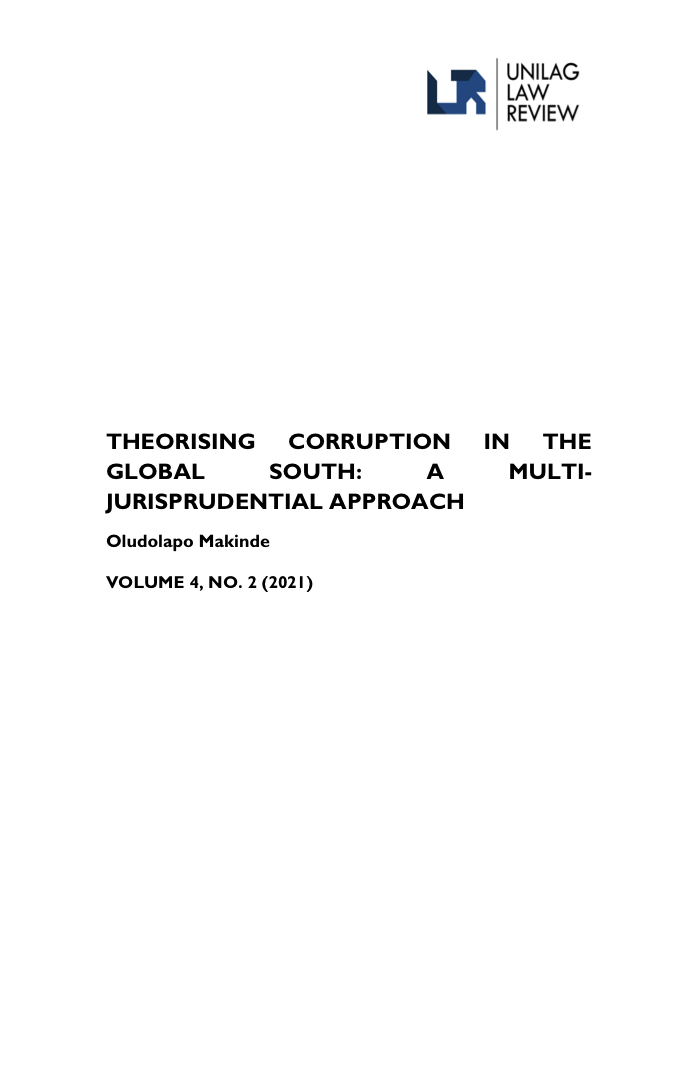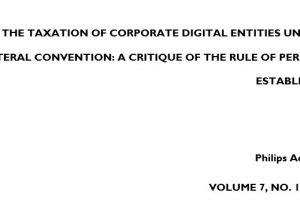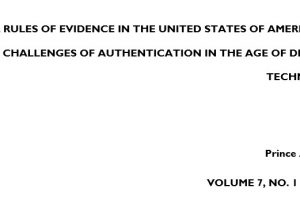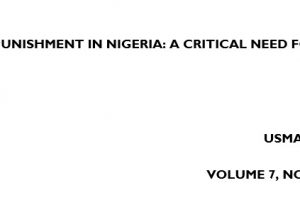THEORISING CORRUPTION IN THE GLOBAL SOUTH: A MULTI-JURISPRUDENTIAL APPROACH
ABSTRACT
This article contributes to ongoing discussions on corruption by calling for the application of a multi-jurisprudential approach towards understanding corruption in the Global South (using Nigeria as an example). Accordingly, three prominent legal theories are discussed, namely, Law and Economics, Critical Legal Studies, and Legal Realism, and their respective contributions to anti-corruption normativity efforts. While the Law and Economics approach is useful in understanding the mechanics behind corruption, that is, what motivates an individual to engage in or refrain from corrupt activities, the Critical Legal Studies approach questions the Northern-centred character of most anti-corruption literature and policies. Finally, a Legal Realism lens is employed to make a formidable appeal for an interdisciplinary approach towards understanding and solving the corruption problem.
Keywords: Law and Economics, Critical Legal Studies, Legal Realism, Corruption.
To read the full article, click here.
UNILAG Law Review, (2021) Volume 4 Edition 2
About the Author
Oludolapo Makinde is a doctoral student at the Allard School of Law and a Nigerian-trained corporate lawyer. Her current research lies at the intersection of corporate governance, artificial intelligence and anti-corruption law. She also obtained her LL.M degree at Allard Law, and her research involved a comparative analysis of the Nigerian and Canadian corporate governance frameworks. Prior to pursuing graduate studies, she functioned as a Legal Associate at Kenna Partners, a leading law firm in Nigeria, and provided corporate governance advisory services to the firm’s clients. She can be contacted via email: oludolapo.makinde@gmail.com.




